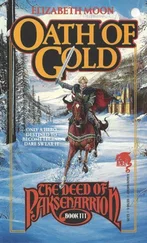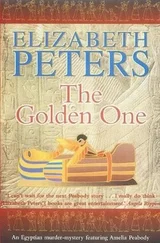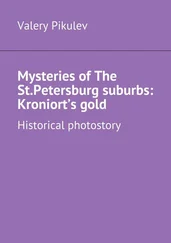“Yes,” I said.
Schmidt’s fork, with its impaled chunk of sausage, stopped midway to his mouth. Weisswurst is really quite revolting in appearance; I will spare you the comparisons. I averted my eyes.
“What is it?” Schmidt asked solicitously. “There is in your voice a note of grief, of tears repressed—”
“There is nothing of the sort. Your imagination is getting out of hand.”
“ Ach, so ? Then with the tactfulness for which I am well known, I will pass on to matters of documented fact. Since you are this Ms. Know-It-All, I presume you are well acquainted with the details of the fall of Berlin in 1945.”
“No, I am not, and what’s more, I don’t want to be. Art history may be a cop-out, but at least it enables me to focus on the positive achievements of the human race.”
I had meant the statement as a criticism—an indictment, if you will—of myself; but Schmidt’s sudden sobriety showed I had hit a nerve. Then, too late, I remembered something I had been told by Gerda, who really was Ms. Know-It-All. Schmidt had been a member of the White Rose, the Munich student conspiracy against Hitler—and he had lost many of his friends, including the girl he had hoped to marry, when the plot was discovered and the ringleaders were savagely executed. If the story was true, and I had no reason to suppose it was not, Schmidt had even stronger reasons than I to retreat from the contemplation of man’s inhumanity to man.
I didn’t apologize, since that would only have made things worse. After an interval, Schmidt’s cherubic countenance returned to its normal, cheerful expression. He went on without referring to what I had said.
“The most valued exhibits from the Berlin museums had been removed to a bunker in the Tiergarten—the zoo.”
“I know what Tiergarten means.”
“Ha! But you don’t know, I will bet you, that many of the objects taken away by the Russians when they entered the bunker have now been returned. The Gobelin tapestries, the Pergamum sculptures, the coin collection of Friedrich the Great…”
One up for Schmidt. I had known of the Pergamum sculptures, but not the other things. Naturally, I wasn’t going to admit my ignorance.
“All right,” I said, with an exaggerated sigh. “Let’s admit for the sake of argument that both preposterous premises are right. The gold in the photograph is the genuine article and the stain on the envelope is human blood. We’re still up the creek without a paddle. We have no idea where that photograph came from.”
Schmidt’s cheeks gyrated as he tried to chew and nod at the same time. Swallowing, he patted his mouth daintily with the tail of his napkin and then remarked, “Too true. What a pity that the one man who might lead us out of our dilemma is no longer among the living.”
I reached for a piece of bread and busied myself breaking and buttering it.
Schmidt is so classically, overpoweringly cute that people tend to forget how intelligent he is. And I swear there are times when I think he can read my mind. Not that a high degree of ESP was required in this case. The word “copy” inevitably brought John to mind. Also the words “fraud,” “fake,” and “crook.”
Sir John Smythe he called himself, among other names—none of them his real one. The title was equally apocryphal. He had once admitted that John was his first name—not very informative, even if it was true, which it might not be. He was the most accomplished liar since Baron Münchausen.
His physical appearance varied as extravagantly as his name. The underlying structure, the basic John Smythe, was inconspicuously average—about my height, rather slightly built, with no identifying characteristics. In repose his features could only be described as pleasantly unmemorable, but they were capable of a rubbery flexibility any actor would have sold his soul to possess. The color of his hair and eyes varied, according to the circumstances (usually illegal); but, as I had good cause to know, he was fair-haired and blue-eyed. The only features he had trouble disguising—from me, at least—were his lashes, long and thick as a girl’s, and his hands. Deft, skillful hands, long-fingered, deceptively slender…
“Shall I ask the waiter for more butter?” Schmidt asked sweetly.
I looked at my plate. On it were five pieces of bread, each buried under a greasy yellow mound.
“No, thanks, this will do,” I said, and bit into one of the slices. The slippery, sliding texture of the butter against the roof of my mouth made me want to gag.
Schmidt is a canny little kobold. He didn’t refer to the subject again. He didn’t have to. The damage had been done, though not by him. By the photograph, the fake, the fraud.
I left work early, and when I got home that evening I did something I had sworn I would never do again. The portrait was buried deep under a pile of cast-off, out-of-date business papers. Usually it takes me days to find a needed receipt or letter, but I had no trouble finding this particular item.
The portrait was not a photograph, or a sketch, or a painting. I had no snapshots of John; I doubt if many people did. He had good cause to be leery of cameras. But the silhouette had been cut by a master of that dying art; the black paper outline captured not only the distinctive bone structure and the sculptured line of that arrogant nose, but also a personality, in the confident tilt of the chin and the suggestion of a faint smile on the thin, chiseled lips.
People claim wine is a depressant. It never depressed me until that evening. I sat on my nice newly upholstered couch with my nice friendly dog sleeping at my feet, sipping my nice chilled Riesling Spätlese , and my mood got blacker with every sip—black as the scissored outline at which I stared. It might have been the chilly hiss of sleet against the windows. It might have been Caesar, moaning and twitching in a doggish nightmare. Sometimes dogs seem to have happy dreams. I had always assumed they grinned and whined at visions of bones, and overflowing food dishes, and friendly hands stroking them. What then were the subjects of canine nightmares? Giant cats the size of grizzly bears? Perhaps Caesar was reliving the tribulations of his youth, before I adopted him. I would never forget my first sight of him, bursting with fangs bared and eyes blazing out of the darkness of the antique shop I happened to be burgling. His keeper had kept him half-starved and beaten him to make him savage…
John was one of the gang—art swindlers, forgers of historic gems. He boasted that half the great art collections contained copies he had substituted for the priceless originals, and he was particularly proud of the fact that the substitutions had never been detected. Not for him the armed attack, the murdered guards, the crude, grab-it-and-run techniques of lesser craftsmen. John abhorred violence, particularly when it was directed against him.
However, he had killed at least one man. I couldn’t complain about that since the man he killed had been doing his damnedest to murder me.
John had vanished under the icy storm-lashed waters of Lake Vippen six months earlier, taking with him the aquatic assassin who had picked me as victim number one. The body of the man he killed had been found a few days later. John had never been seen again.
The scenario was as romantically tragic as any I could have invented for my unending novel; and all the surviving participants had been suitably moved, including Schmidt, who had insisted on helping erect a suitable monument to the fallen hero. Schmidt was determined to regard John as a kind of Robin Hood, which couldn’t have been farther from the truth. John did confine his depredations to the rich, but that was only because poor people didn’t have anything worth stealing, and the only charity to which he contributed was himself. Of course John had never happened to rob Schmidt’s museum. And Schmidt is a hopeless sentimentalist.
Читать дальше








